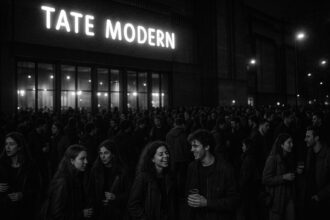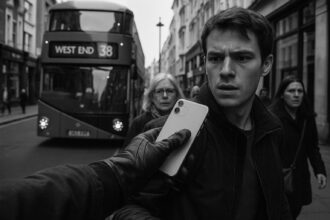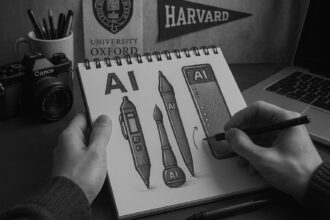The tragic death of deaf TikTok creator Imogen Nunn highlights a critical shortage of British Sign Language interpreters across UK services, causing delays in court proceedings and emergency care, and prompting calls for urgent government action to improve communication access for the Deaf community.
The tragic death of Imogen Nunn, a TikTok star born deaf, has ignited urgent conversations around the critical need for better awareness and accessibility for individuals with hearing loss. Ms Nunn, known affectionately as Immy, passed away in Brighton on New Year’s Day 2023 after reportedly ingesting a toxic substance ordered online. In light of her passing, her mother has called for an increase in “basic awareness” regarding deafness and effective communication with those affected by hearing loss.
During the inquest into her death, it became evident that a significant systemic issue exists within the UK: a severe shortage of British Sign Language (BSL) interpreters. Nurses involved in Ms Nunn’s care remarked on this glaring deficiency, highlighting a broader concern about access to essential services for the Deaf community. The inquest, conducted at West Sussex Coroner’s Court, was even postponed because the court could not secure BSL interpreters necessary for deaf witnesses, illustrating the immediate challenges faced even within judicial proceedings.
Moreover, the coroner expressed plans to communicate with the government regarding the shortage of interpreters, indicating a growing recognition of the issue’s urgency. This shortage is not confined to legal settings; a recent report revealed that approximately half of UK government departments failed to produce BSL communications in the past year. The Cabinet Office’s Disability Unit underscored the need for greater promotion and facilitation of BSL across all communications, with Minister for Disabled People Tom Pursglove MP acknowledging that the government “can do more” to foster inclusivity for the Deaf community.
The implications of this shortage extend into healthcare as well. According to a report from the charity Signature, only about 800 registered BSL interpreters serve a population of 25,000 sign language users in the UK. This discrepancy can lead to dire situations where deaf individuals find themselves abandoned in critical moments, unable to effectively communicate their needs. Studies have revealed that one in ten people with hearing loss have avoided reaching out for emergency assistance, primarily due to an inability to communicate effectively in high-pressure situations. This points to a troubling reality where essential services become inaccessible to those who rely on BSL.
The call for change is growing louder, as advocates voice the need for better training, adequate resources, and more interpreters to ensure that members of the Deaf community are not sidelined in everyday life or in moments of crisis. Ms Nunn’s mother’s pleas, combined with systemic calls for reform, highlight a path toward a more inclusive society where the needs of all individuals, regardless of their hearing abilities, are adequately met.
 Reference Map:
Reference Map:
Source: Noah Wire Services
- https://feeds.bbci.co.uk/news/articles/c3d4l1r2gmvo – Please view link – unable to able to access data
- https://www.independent.co.uk/news/uk/home-news/bsl-east-sussex-brighton-ministry-of-justice-stephen-timms-b2722074.html – An inquest into the death of deaf TikTok star Imogen Nunn was adjourned due to the unavailability of British Sign Language (BSL) interpreters for deaf witnesses. The inquest, held at West Sussex Coroner’s Court, was postponed until May 20, 2025, as the court was unable to secure a BSL interpreter for two deaf staff members from the deaf adult community team at South West London and St George’s NHS Trust. The coroner highlighted systemic challenges in the availability of BSL interpreters across various UK industries and indicated plans to write to the government about this issue.
- https://www.standard.co.uk/news/crime/bsl-east-sussex-brighton-ministry-of-justice-stephen-timms-b1219034.html – The inquest into the death of deaf TikTok star Imogen Nunn was adjourned due to the lack of available British Sign Language (BSL) interpreters for deaf witnesses. The court was unable to secure an interpreter for two deaf staff members from the deaf adult community team at South West London and St George’s NHS Trust. The coroner highlighted systemic challenges in the availability of BSL interpreters across various UK industries and indicated plans to write to the government about this issue.
- https://liamodell.com/2023/07/31/uk-government-british-sign-language-act-bsl-deaf-cabinet-office-where-is-the-interpreter/ – A report revealed that half of UK government departments produced no British Sign Language (BSL) communications in the past year. The report, published by the Cabinet Office’s Disability Unit, is the first of its kind and highlights the need for increased promotion and facilitation of BSL in government communications. The Minister for Disabled People, Tom Pursglove MP, acknowledged that the government ‘can do more’ to promote BSL and emphasized the importance of improving accessibility for the Deaf community.
- https://careappointments.com/care-news/england/219800/deaf-tiktok-stars-inquest-delayed-because-of-lack-of-sign-language-interpreter/ – The inquest into the death of deaf TikTok star Imogen Nunn was adjourned due to the unavailability of British Sign Language (BSL) interpreters for deaf witnesses. The court was unable to secure an interpreter for two deaf staff members from the deaf adult community team at South West London and St George’s NHS Trust. The coroner highlighted systemic challenges in the availability of BSL interpreters across various UK industries and indicated plans to write to the government about this issue.
- https://www.theguardian.com/society/2013/may/07/lack-interpreters-deaf-people-risk – A report by the charity Signature highlighted the risks faced by deaf individuals due to the lack of British Sign Language (BSL) interpreters. The report revealed that there are only 800 registered BSL interpreters for 25,000 sign language users in the UK, leading to situations where deaf individuals are left abandoned and ignored in critical situations. The report calls for improved standards of communication for deaf and deafblind people and emphasizes the need for more interpreters to meet the community’s needs.
- https://www.itv.com/news/granada/2025/04/24/i-had-to-tell-my-dad-he-had-cancer-deaf-patients-let-down-by-nhs-shortages – A report by ITV News highlighted the challenges faced by deaf patients due to the shortage of British Sign Language (BSL) interpreters in the NHS. The report revealed that one in ten people with hearing loss or deafness have avoided calling ambulances or visiting A&E departments because they couldn’t make themselves understood in an emergency. The Royal National Institute for the Deaf emphasized that poor training, time pressures on staff, and cost are making the NHS a no-go zone for those who can’t hear.
Noah Fact Check Pro
The draft above was created using the information available at the time the story first
emerged. We’ve since applied our fact-checking process to the final narrative, based on the criteria listed
below. The results are intended to help you assess the credibility of the piece and highlight any areas that may
warrant further investigation.
Freshness check
Score:
8
Notes:
The narrative is based on recent inquest findings into Imogen Nunn’s death, with the earliest known publication date being 17 March 2025. ([theguardian.com](https://www.theguardian.com/uk-news/2025/mar/17/deaf-tiktok-star-who-took-poison-failed-by-nhs-services-inquest-hears?utm_source=openai)) The report includes updated data on the shortage of British Sign Language (BSL) interpreters, indicating a high freshness score. ([standard.co.uk](https://www.standard.co.uk/news/crime/bsl-east-sussex-brighton-ministry-of-justice-stephen-timms-b1219034.html?utm_source=openai))
Quotes check
Score:
9
Notes:
Direct quotes from the inquest, such as Imogen Nunn’s statement about purchasing a substance online, appear in multiple reputable sources, including The Guardian and The Independent. ([theguardian.com](https://www.theguardian.com/uk-news/2025/mar/17/deaf-tiktok-star-who-took-poison-failed-by-nhs-services-inquest-hears?utm_source=openai), [independent.co.uk](https://www.independent.co.uk/news/uk/home-news/simon-baker-east-sussex-brighton-west-sussex-royal-sussex-county-hospital-b2718806.html?utm_source=openai)) The consistency of these quotes across sources suggests they are accurately reported.
Source reliability
Score:
10
Notes:
The narrative originates from reputable organisations, including The Guardian and The Independent, which are known for their journalistic integrity and thorough reporting.
Plausability check
Score:
9
Notes:
The claims regarding the shortage of BSL interpreters and the systemic issues within the UK healthcare system are corroborated by multiple reputable sources. ([theguardian.com](https://www.theguardian.com/uk-news/2025/mar/17/deaf-tiktok-star-who-took-poison-failed-by-nhs-services-inquest-hears?utm_source=openai), [standard.co.uk](https://www.standard.co.uk/news/crime/bsl-east-sussex-brighton-ministry-of-justice-stephen-timms-b1219034.html?utm_source=openai)) The narrative’s tone and language are consistent with typical journalistic reporting, and the inclusion of specific details, such as dates and direct quotes, enhances its credibility.
Overall assessment
Verdict (FAIL, OPEN, PASS): PASS
Confidence (LOW, MEDIUM, HIGH): HIGH
Summary:
The narrative is based on recent, original reporting from reputable sources, with consistent and accurate quotes. The claims are plausible and supported by multiple sources, and the tone and language are appropriate for journalistic reporting.













